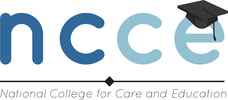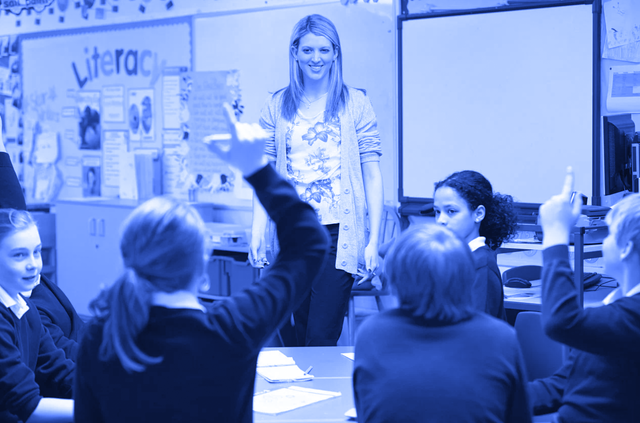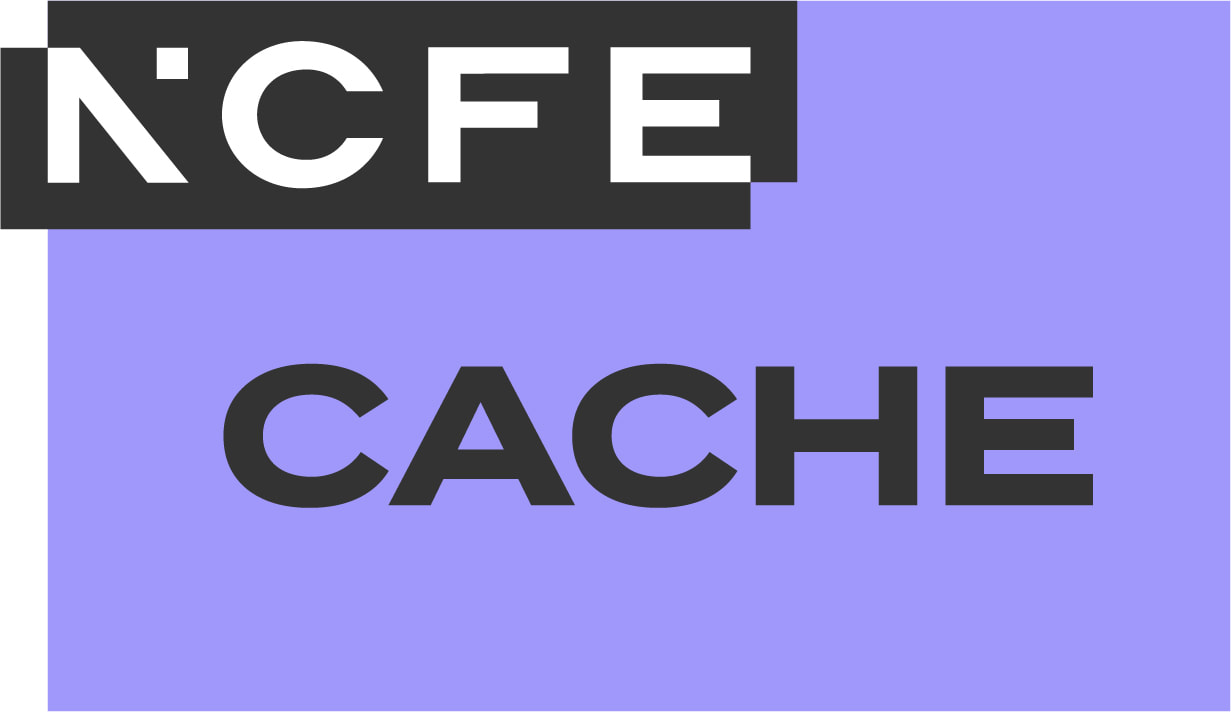- Teaching Assistants
- >
- CACHE L3 Diploma Supporting Teaching and Learning
CACHE L3 Diploma Supporting Teaching and Learning
SKU:
£880.00
73.34
880
£73.34 - £880.00
Unavailable
per item
💙 Onsite Observations - INCLUDED ✅
💙 1-2-1 Tutorials - INCLUDED ✅
💙 Interactive online learning - INCLUDED ✅
💙 All taught sessions - INCLUDED ✅
💙 Additional CPD Webinars - INCLUDED ✅
💙 Awarding Body Fees - INCLUDED ✅
💙 Student Community Group - INCLUDED ✅
💙 Course Hodder Text Book - INCLUDED ✅
💙 Extension Fees - ABSOLUTELY NOT! ❎
Check out our terms and conditions right here.
💙 1-2-1 Tutorials - INCLUDED ✅
💙 Interactive online learning - INCLUDED ✅
💙 All taught sessions - INCLUDED ✅
💙 Additional CPD Webinars - INCLUDED ✅
💙 Awarding Body Fees - INCLUDED ✅
💙 Student Community Group - INCLUDED ✅
💙 Course Hodder Text Book - INCLUDED ✅
💙 Extension Fees - ABSOLUTELY NOT! ❎
Check out our terms and conditions right here.
-
Key Facts
-
Description
-
Placement
-
Syllabus
-
Your Future
<
>
Qualification Level: 3
Awarding Body: CACHE
Regulated Qualification (QRN) Number: 603/2496/X
Placement Required: Yes, 200 hours minimum.
Recognised Qualification: Yes. RQF
Entry Requirements: L2 Literacy and Numeracy preferred
Minimum Age: 16 Years
Pre-requisites: None.
Payment types: Instalments available
Resources included: Full tutor support, online learning materials, observations*, and student support forum, Hodder course text book.
You may want to think about getting your English and Maths qualifications to if you do not have a Grade C in English and Maths. We can offer Functional Skills as part of your course, if you wish to up skill in these areas.
*Please see our terms and conditions relating to on-site observations for learners living outside of the UK mainland.
Awarding Body: CACHE
Regulated Qualification (QRN) Number: 603/2496/X
Placement Required: Yes, 200 hours minimum.
Recognised Qualification: Yes. RQF
Entry Requirements: L2 Literacy and Numeracy preferred
Minimum Age: 16 Years
Pre-requisites: None.
Payment types: Instalments available
Resources included: Full tutor support, online learning materials, observations*, and student support forum, Hodder course text book.
You may want to think about getting your English and Maths qualifications to if you do not have a Grade C in English and Maths. We can offer Functional Skills as part of your course, if you wish to up skill in these areas.
*Please see our terms and conditions relating to on-site observations for learners living outside of the UK mainland.
This qualification provides learners with an understanding of the knowledge needed when working directly with children and young people in a school or college environment. It will enable you to gain an understanding of elements including children and young people’s development, safeguarding their welfare, and communication and professional relationships.
This qualification aims to:
• focus on the study of the supporting teaching and learning
• offer breadth and depth of study, incorporating a key core of knowledge
• provide opportunities to acquire a number of practical and technical skills.
The objectives of this qualification are to:
• provide learners with knowledge and skills needed to work in a school or college environment
• provide a stepping stone into further learning within the sector
This qualification aims to:
• focus on the study of the supporting teaching and learning
• offer breadth and depth of study, incorporating a key core of knowledge
• provide opportunities to acquire a number of practical and technical skills.
The objectives of this qualification are to:
• provide learners with knowledge and skills needed to work in a school or college environment
• provide a stepping stone into further learning within the sector
This course requires you to undertake a placement of 100 hours (Certificate) or 200 hours (Diploma), within which you will be able to learn and demonstrate your skills of learning support within an educational establishment.
Your placement needs to be within a school, college or training environment within Key Stages 1-5 or in Further or Adult Education.
Don't worry if you do not have a placement right away. You can enjoy the learning experience and then put your knowledge into action at any point through the programme.
Please note, an early years setting is not appropriate for this qualification, and the Early Years Educator qualifications may be a more suitable route if you work within the Foundation Unit of a school.
Your placement needs to be within a school, college or training environment within Key Stages 1-5 or in Further or Adult Education.
Don't worry if you do not have a placement right away. You can enjoy the learning experience and then put your knowledge into action at any point through the programme.
Please note, an early years setting is not appropriate for this qualification, and the Early Years Educator qualifications may be a more suitable route if you work within the Foundation Unit of a school.
Block 1: Schools and Colleges as Organisations and Personal Development– within this block you will learn about the structure of education; how schools and colleges are organised; ethos, mission, aims and values; policy frameworks; and the wider context in which schools and colleges operate. Understand How Children and Young People Develop – within this block you will learn about child development with children and young people from birth to 19 years develop, including underpinning theoretical perspectives. It also includes actions taken when differences in development are identified. We will look at Biological factors, external factors and theories of development.
Block 2: Support health and safety in a learning environment and Understand How to Safeguard Children and Young People – within this part of the block you will learn about how to support children and young people’s health and safety in a learning environment. You will also explore the importance of safeguarding. How this is relevant to children and young people and the legislations around your Home Nation.
Block 3: Support children and young people during learning activities: This unit provides the knowledge, understanding and skills to support learning activities in different learning environments. It requires competence in supporting the planning, delivery, assessment, and review cycle. Support English and maths skills: This unit provides the knowledge, understanding and skills to provide English and maths support across teaching and learning. Support the use of ICT in the learning environment: This unit provides the knowledge, understanding and skills to provide ICT support across teaching and learning. It requires knowledge of policies and procedures for the use of ICT in the learning environment and the demonstration of competence in using ICT to promote learning and support learners to review their achievements.
Block 4: Develop professional relationships with children, young people, and adults: This unit provides the knowledge and understanding which underpins effective communication and professional relationships with children, young people and adults. It covers the competence required to develop professional relationships with children, young people and adults. Support positive behaviour in children and young people: This unit provides the knowledge, understanding and skills required to support children and young people’s positive behaviour. It requires demonstration of competence in promoting positive behaviour and managing behaviour that challenges.
Block 5: Support assessment for learning: This unit provides the knowledge, understanding and skills to support assessment for learning. It requires demonstration of competence in using assessment strategies to promote learning, supporting learners to review their learning strategies and achievements, and working with the teacher to review assessment for learning processes and outcomes. Engage in personal and professional development: This unit is aimed at those who work with children and young people in a wide range of learning environments. The unit considers personal development and reflective practice, which are both fundamental to this role.
Block 6: Support children and young people’s speech, language and communication: This unit aims to provide a basis for understanding the importance of speech, language and communication for children and young people’s overall development and interaction with others. It also explores ways to support children and young people in the development of their speech, language and communication skills. Understand how to support bilingual learners: This unit provides the knowledge and understanding to support bilingual learners in a learning environment. Understand how to support learning of children and young people with special educational needs and disabilities: This unit provides the knowledge and understanding to provide support for children and young people with special educational needs and disabilities (SEND) in the learning environment.
Block 7: Support children and young people during transitions: This unit covers the knowledge, understanding and skills to support children and young people through transitions in their lives. It requires competence in recognising and responding to signs and indications of transitions and supporting them to manage transitions and reach positive outcomes. Support the role of play, leisure and extra-curricular activities for children and young people: This unit provides the knowledge and understanding required to support children and young people’s play and leisure. It requires knowledge of play and leisure activities and helping children and young people to manage risk and challenge. This unit also explores enrichment through an extra-curricular activity such as a study club, recreational activity, sports team or performing arts activity.
Block 2: Support health and safety in a learning environment and Understand How to Safeguard Children and Young People – within this part of the block you will learn about how to support children and young people’s health and safety in a learning environment. You will also explore the importance of safeguarding. How this is relevant to children and young people and the legislations around your Home Nation.
Block 3: Support children and young people during learning activities: This unit provides the knowledge, understanding and skills to support learning activities in different learning environments. It requires competence in supporting the planning, delivery, assessment, and review cycle. Support English and maths skills: This unit provides the knowledge, understanding and skills to provide English and maths support across teaching and learning. Support the use of ICT in the learning environment: This unit provides the knowledge, understanding and skills to provide ICT support across teaching and learning. It requires knowledge of policies and procedures for the use of ICT in the learning environment and the demonstration of competence in using ICT to promote learning and support learners to review their achievements.
Block 4: Develop professional relationships with children, young people, and adults: This unit provides the knowledge and understanding which underpins effective communication and professional relationships with children, young people and adults. It covers the competence required to develop professional relationships with children, young people and adults. Support positive behaviour in children and young people: This unit provides the knowledge, understanding and skills required to support children and young people’s positive behaviour. It requires demonstration of competence in promoting positive behaviour and managing behaviour that challenges.
Block 5: Support assessment for learning: This unit provides the knowledge, understanding and skills to support assessment for learning. It requires demonstration of competence in using assessment strategies to promote learning, supporting learners to review their learning strategies and achievements, and working with the teacher to review assessment for learning processes and outcomes. Engage in personal and professional development: This unit is aimed at those who work with children and young people in a wide range of learning environments. The unit considers personal development and reflective practice, which are both fundamental to this role.
Block 6: Support children and young people’s speech, language and communication: This unit aims to provide a basis for understanding the importance of speech, language and communication for children and young people’s overall development and interaction with others. It also explores ways to support children and young people in the development of their speech, language and communication skills. Understand how to support bilingual learners: This unit provides the knowledge and understanding to support bilingual learners in a learning environment. Understand how to support learning of children and young people with special educational needs and disabilities: This unit provides the knowledge and understanding to provide support for children and young people with special educational needs and disabilities (SEND) in the learning environment.
Block 7: Support children and young people during transitions: This unit covers the knowledge, understanding and skills to support children and young people through transitions in their lives. It requires competence in recognising and responding to signs and indications of transitions and supporting them to manage transitions and reach positive outcomes. Support the role of play, leisure and extra-curricular activities for children and young people: This unit provides the knowledge and understanding required to support children and young people’s play and leisure. It requires knowledge of play and leisure activities and helping children and young people to manage risk and challenge. This unit also explores enrichment through an extra-curricular activity such as a study club, recreational activity, sports team or performing arts activity.
Further Study: These qualifications aim to provide learners with a number of progression options, including higher level studies at university or FE colleges. The skills required to progress to higher academic studies are different from those required at Levels 1 and 2. Level 3 qualifications enable the development of these skills.
You may also like to consider our advanced practitioner level 4 course.
Employment: This course will qualify you as a Teaching Assistant. You can seek employment working with children and young people or adults in a range of educational settings in a support role. Your specialist skills will help you to apply for positions working with bilingual learners or those with a range of SEND support needs. These skills are highly valuable in education.
You may also like to consider our advanced practitioner level 4 course.
Employment: This course will qualify you as a Teaching Assistant. You can seek employment working with children and young people or adults in a range of educational settings in a support role. Your specialist skills will help you to apply for positions working with bilingual learners or those with a range of SEND support needs. These skills are highly valuable in education.







